|
Today you will begin working with a new team in preparation for the upcoming Summative Debate on authoritarian regimes. Your team will be assigned to represent the proposition or opposition of a statement on an authoritarian regime. Once you know your topic, you and your group will begin research and discuss the role each of you will play in the debate. A DBQ packet has been provided to you to begin your initial research and learning of your topic. It is recommended you do additional research on your own and find additional evidence (and sources) to help you in preparation. You are ready for this! You've been preparing for this!!! Good luck!!! Helpful Resources:
While the DBQ packet is provided to you for use, groups & individuals are encouraged to use additional evidence and sources you find on your own to prepare for your role in the debate. HW: Finish Formative Reflection on skills for "Constructing arguments"Please work on the formative reflection on your strengths and areas for improvement on constructing arguments. It is important that you identify a goal and area to focus on for improving your argumentative skills prior to next week's summative debate.
Formative 1-minute presentationToday students will present their 1 minute/1-slide presentations to their peers. While they are presenting, the audience will be watching and providing constructive feedback to help students identify their strengths and weaknesses with presenting historical information while using supporting evidence in their speech. This is a chance to practice the skills needed in "constructing arguments" and also public speaking skills. Formative reflection on constructing argumentsAfterwards, students will complete a formative reflection on their strengths and weaknesses in constructing arguments. There is a document that has been dropped in WH Drop folders to use for this. Students will need to look at their rubrics and any feedback received from their formative WWI debate, their formative WWI essay and from today's formative presentation. Not only will you be asked to identify the strengths and any weakness(es) in your skills in an constructing argument, but use specific evidence from your formative work. Additionally, you will need to set 1 goal to focus on skill development and improvement for the upcoming summative debate. HW: Finish formative reflectionHelpful Resources for Today's Class:
HW: Due Friday 2/23 (A Blocks); 2/26 (B Block): slide + 1 min. presentation notes/speechBe sure when you arrive to the next scheduled class you are ready to present.
Presentation Tips: If you look at the rubric you will see that it is important that your presentation topic addresses the question in some part and that you provide evidence to support your idea(s) and reference your source(s). You should also be sure the image you select for your slide is relevant to the ideas you discuss. Your image can be used as a piece of evidence. You should reference your image in some way (could take a few seconds or longer--if it is an important piece of evidence you will use). Be sure your image also has the source listed. Speech Tips: You are allowed to have notes (note card, sheet of paper) with you when you present. Try to avoid reading from your notes the whole time or reading from your slide (your audience is capable of reading the text on your slide). Today we will take a look at how WWI ended. You will work within a new group to try to understand how WWI reshaped Europe socially, politically and economically. You will investigate the steps taken by nations after the war to establish a process for resolving issues among European nations diplomatically to avoid future conflicts. And whether these actions were successful or failures in trying to maintain peace. ...We are starting an informal group investigation into how WWI is linked to WWII... Helpful Resources for Today's Class:
Exit Ticket: Complete S.S. SurveyThe Social Studies Department is looking at extending our non-AP/AT course offerings in 2019-2020. Based on this, we would like to see what interest you have in current and potential regular course listings.
Survey: here is the link to the survey Today in class you will finish writing your formative argumentative essay on WWI. Just a reminder that this is practice and you will receive feedback on your claim (& the evidence you provide to support your claim) and on your counterclaim (& strategy of using both logos and ethos) to discount and refute other viewpoints while continuing to support your claim. While you will not be writing a summative argumentative essay in this unit, this formative essay is important practice in the skill in developing balanced historical arguments, and will help prepare you for the summative debate later in this unit--and for the summative argumentative essay you will be writing in the next unit (Unit 4). This will also be used for an upcoming Summative Reflection on your ability to develop historical arguments. For this reason, you are asked to do your best on this formative. Helpful resources for today's class:
HW: Read article; be prepared to discuss in classHW: Pick and read ONE of the following articles:
We will use these for a discussion at the start of next class before we begin taking a look at how WWI ended and the turn of events that led to a failed peace plan. These articles, while they are editorial opinion pieces marking the 100-year anniversary of the start of WWI, they have some rather provocative ideas and makes predictions and warnings about turbulent times we see in the world today to remind us that the lessons of WWI are still relevant to our lives today. Do you agree or disagree with these articles' views? |
Mrs. Stewart's CourseYou'll find a daily agenda posted here for each day that class meets Archives
May 2020
Categories |
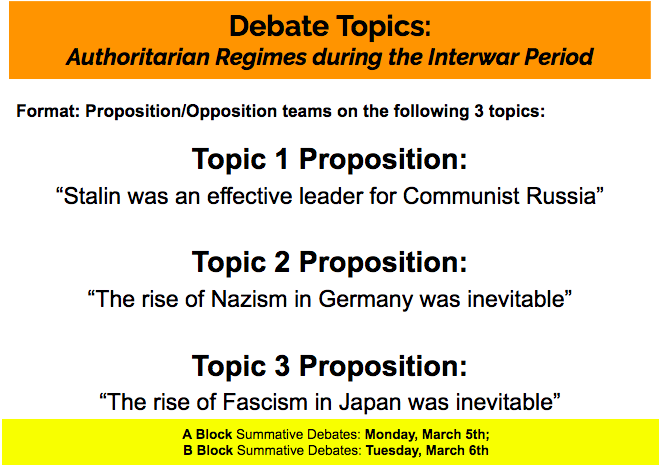
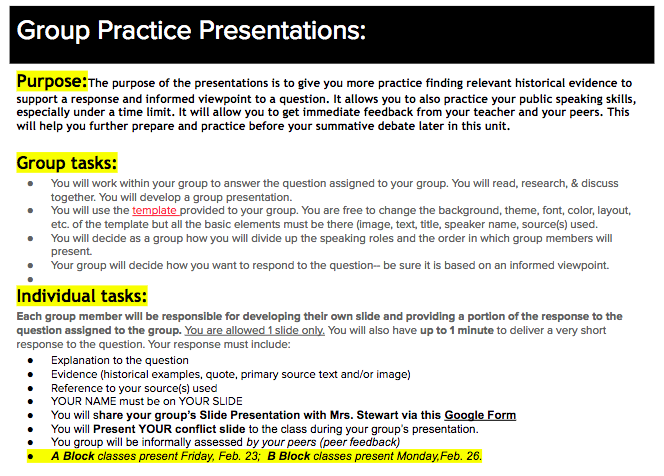
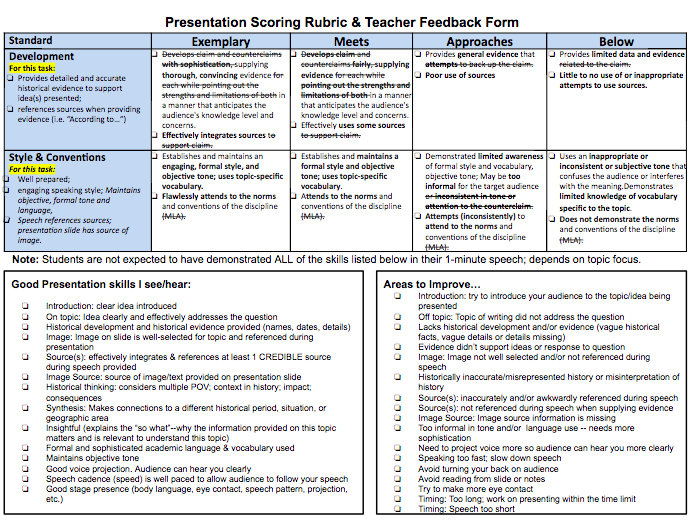
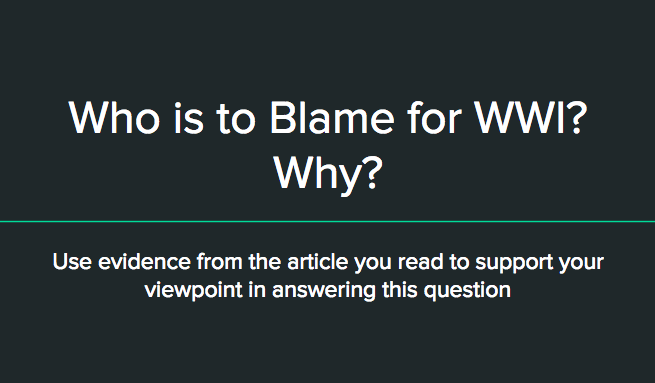
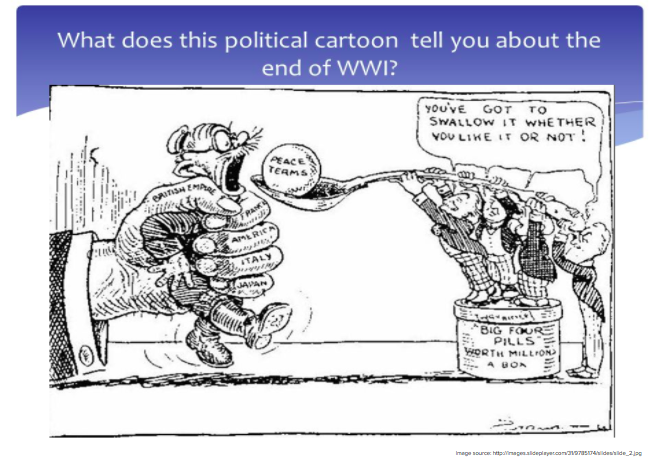
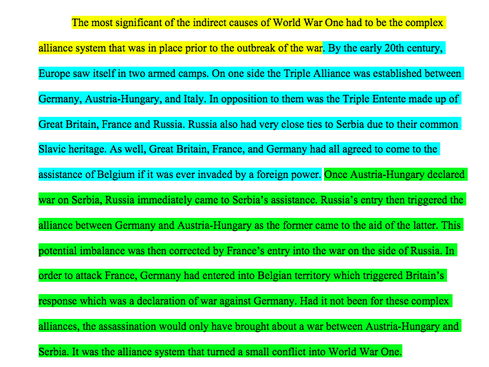
 RSS Feed
RSS Feed